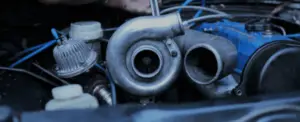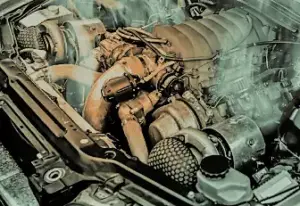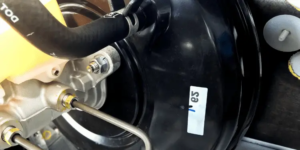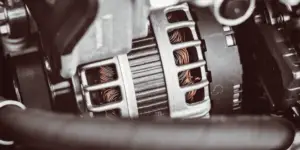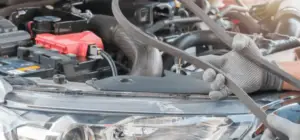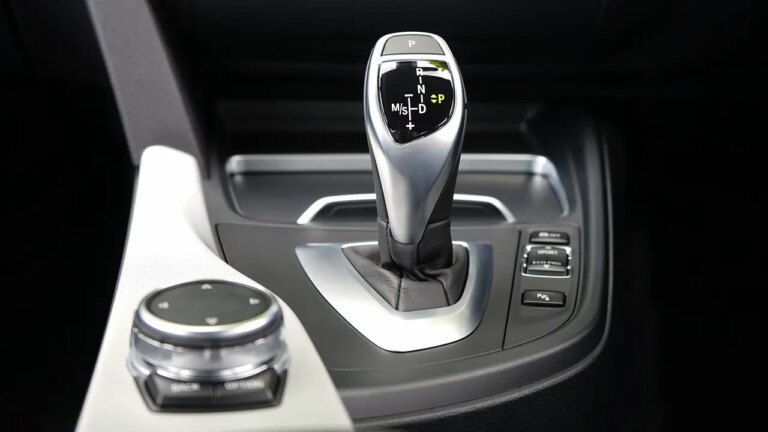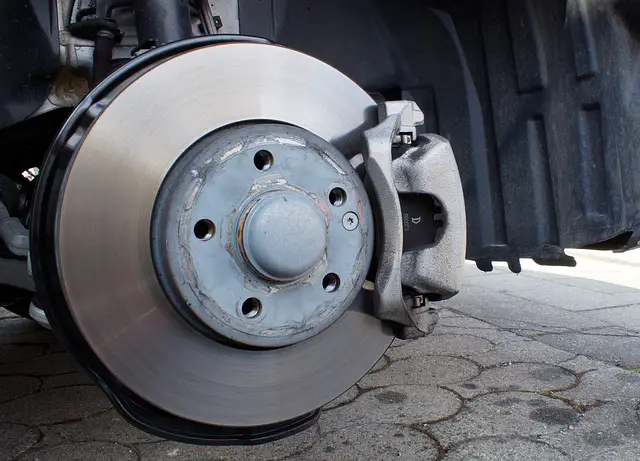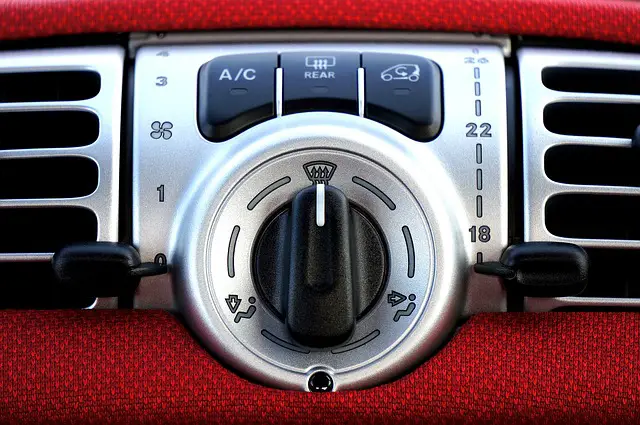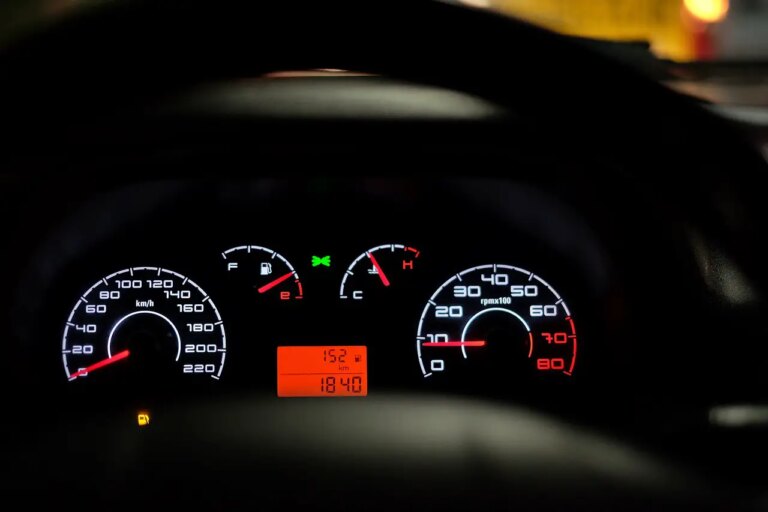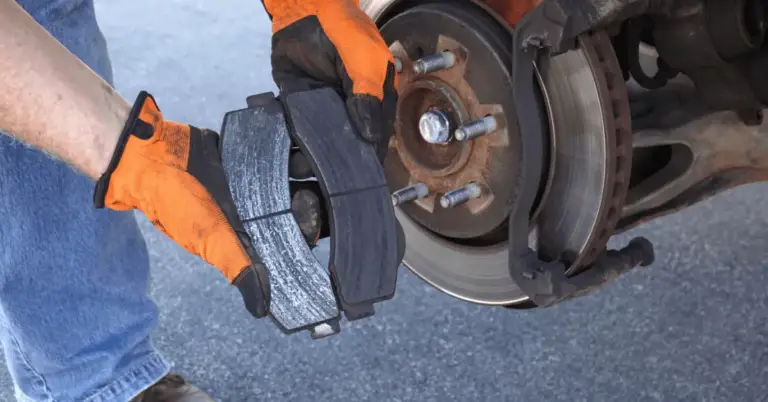Whistling noise at idle is usually harmless and can be caused by several things that do not affect the engine’s life or performance. It can be caused by a vacuum hose leak, the main belt tensioner pulley, the alternator idler pulley, a worn-out window sealant, or a pulley bearing.
We’ll break all these causes into bite-size snippets below:
Other causes harm your engine life and performance and can compromise if the engine runs for too long without having them fixed.
The issues could be a leak in the intake manifold gasket, an idle air control valve having debris, an air cleaner intake having debris, air leaking into the intake manifold, a bad fan clutch, or a power steering fluid issue. Most fixes are cheap and can be done quickly.
Let’s discuss what causes these individual issues and help you diagnose what is causing the whistling noise in your car and what you can do to remedy it.
5 Causes of A Car Whistling At Idle
Vacuum Leak
Vacuum leaks are one of the most common causes of whistling noise at idle. A set of pipes regulates the vacuum created in the engine during combustion, and the vacuum in the intake manifold determines the load of air the engine is about to receive through the air control valve.
The vacuum pipes or hoses are made of rubber and are exposed to engine heat, debris, and water from the road, which may wear them down or damage it. A leak in the vacuum hose causes a whistling noise as air comes in or out of a tight space.
To know if it’s a vacuum leak, first try to locate the whistling noise in the engine section. The noise should come from the top as all the vacuum pipes are located on the top or mid. Rev the engine slightly to see if the whistling noise gets louder.
Repair
If you are familiar with your car’s engine, physically inspect the vacuum hoses, find the damaged one, and replace it. The part won’t cost more than $2, and replacement is straightforward. If you are unfamiliar, a car mechanic can diagnose and change it for you within minutes, costing you around $20.
Pulleys and Belts
There is a system of belts and pulleys driven by the crankshaft to run different car components. There are belts and pulleys to run the alternator, the water pump, the power steering fluid pump, the AC, and other parts. Besides the vacuum leak, the belt and pulley system is also the most common cause of whistling noise at idle.
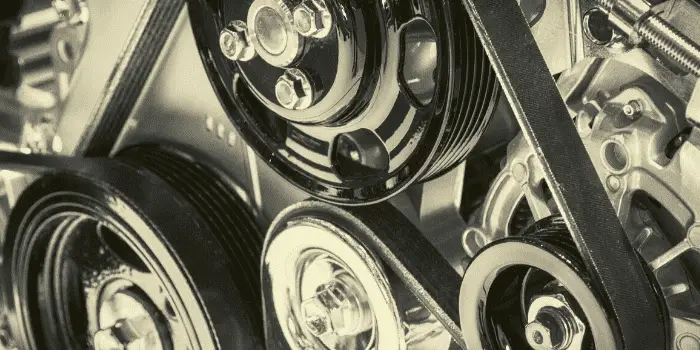
The noise can be due to a loose or damaged belt, a bad or damaged pulley, or its bearing.
Faulty belts and pulleys are easier to diagnose because they make a unique whining noise instead a whistling noise. This whining noise is most noticeable when you start and idle the car. The belt is faulty if the whining noise goes away after the engine warms up.
It could be loose, too tight, or very new. If the issue persists after the engine has warmed up, it could be a pulley or bearing. You can follow the belt and check every pulley for vibration or movement.
Repair
If it’s a belt, have it tightened up or replaced by a professional because it needs proper alignment and tightening. This wouldn’t cost you more than $30. If it’s a pulley or a bearing, replacing that can set you back around $80.
Window Sealant
Window sealant, as the name implies, is to seal off a window so that air around the car doesn’t get in or out unnecessarily. The sealant sometimes wears off early due to extreme heat and moisture, which is usually the climate of many regions. This whistling noise can only be heard in the cabin and not from the engine bay.
To know for sure if it’s a worn window sealant, take the car to a place where there are no winds a pull up your windows. If you don’t hear the whistling noise, then it’s probably the window sealant. To confirm this, check if this whistling noise is louder when driving at high speeds.
If it is louder at high speeds, roll down the windows by just a centimeter or half a centimeter and check if you can still hear the whistling noise. You will only hear this whistling noise when there are strong winds and the windows are up.
Often read next by other visitors: What Causes Windshield Noise? And What To Do About It

Repair
Changing the window sealant cost around $40-$90, depending on how many window seals need replacement.
Air Intake Leaks
Various things ensure absolute intake manifold pressure, such as an intake manifold gasket, idle air control valve, and intake air filter seals. Sometimes heat or debris due to a faulty air intake filter causes the intake manifold gasket to wear or get damaged.
In other cases, physical damage to the intake manifold, such as a crack or damage to the air intake filter, can cause a whistling noise.
There are scenarios with a fault in the throttle body or air control valve, such as debris build-up, damage, or sensor or valve failure, which may cause whistling noise.
Suppose it’s a damaged intake manifold gasket, a damaged intake manifold, a damaged air intake filter seal, or a damaged throttle body. In that case, the whistling noise is most noticeable when you’re driving and you let off the gas pedal.
When your foot is on the pedal, the airflow flows freely, and the leaks don’t face any pressure. But, when you let off the gas, the throttle closes and creates pressure on the leaks making the whistling noise.
The throttle is partially closed at idle, so it could still cause the whistling noise even when you’re not driving. Suppose it’s a debris build-up in the air filter, air control valve, throttle body, or intake manifold.
In that case, the noise will be most noticeable during acceleration and poor fuel economy, poor and jerky acceleration, and the feeling of the engine being choked.
Other visitors found this article helpful: Causes Of A Hissing Noise When Braking [SOLVED]
Repair
A change in the intake manifold gasket will cost around $120. Changing the air filter intake seals cost about $50. A damaged throttle body will require replacement, costing about $150. Debris build-up in the throttle body and air control valve will require cleaning and cost around $30. Air filter costs anywhere between $20 and $100.
Fan Clutch
A bad fan clutch can make a noise similar to a whistling noise. A fan clutch drives cold air to the engine to cool it down efficiently. When the engine is out, the fan spins slower than the engine independently.
If the engine heats up, a clutch engages the fan to the engine and makes it spin at the same speed as the engine. The clutch is spinning when idling, disengaged from the fan.
A bad fan clutch noise can be caused due to worn clutch plates or contamination in clutch fluid, or the damaged clutch bearing can cause a whistling noise. A bad fan clutch noise can also be caused damage to the fan, creating a whistling noise.
If it’s a bad fan clutch noise, check for overheating and spin the fan when the car is switched off. More than three spins mean a damaged clutch. The fan and electronic fans can be checked by a diagnostic tool.
Repair
A fan clutch replacement will cost around $285 and $420. It is better to have it replaced rather than repair it.
Conclusion
A broken or loose vacuum hose is the most frequent cause of whistling when your vehicle is idling. The leak continues when you drive but is more difficult to hear. Other common causes are low power steering fluid and debris in the air intake manifold. A whistling noise is rarely an expensive fix.
The whistling noise is usually harmless and comes from vacuum leaks, belts, or pulleys. This is the most common cause of whistling noises, and it’s typically harmless, and you can drive around for some time before having repairs.
But it’s better to have it checked as early as possible so that something doesn’t fail at a vulnerable time. If you have a new car, then it’s probably being caused by new parts which haven’t been “broken in” yet.
The turbos don’t usually make whistling noises idle in turbo cars, but they could leak the boost system if they do. But the whistling noise cannot be heard at low idle and are most prominent at rough idles or idles under loads.
It is better to have the whistling noise checked rather than letting it prevail for too long because it is a symptom of a problem that might turn into something big with time.


